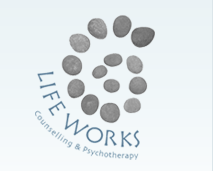Mental health… or whole person health?
Anywhere you look currently, you’ll find messages, articles or podcasts about mental health. Either the problems people are having with their mental health, or tips to improve your mental health.
I don’t like this term. I prefer to talk about ‘whole person health’ with my clients.
The way you think and the way you feel is either supported or eroded by the quality of your physical health. Your physical health is either supported or eroded by the quality of how you think about yourself (your self-talk) and the way you feel within yourself (your sensations and feelings) and about yourself. Mostly, you won’t have been taught about our physiology and how to support your physical health. This can contribute to you being in ‘protection’ mode. Rather than ‘connection’ mode, which assists you to feel relaxed and at ease within yourself and within the world.
There’s little teaching in our developed world about how to have a relationship with yourself. You may have learned algebra at school, or the difference between an isosceles and acute triangle, but were probably never taught about how to acknowledge and identify the feelings you were having, or how to express them. And surprisingly, you have sensations and feelings every day- probably a lot more often than you have to identify the type of triangle you’re dealing with! You grew your IQ. But there were not the same opportunities for growing your EQ. This is pretty usual for most of the people I see in my practice (and also for my experience growing up).
What this means though, is that you become illiterate about your feelings, emotions, sensations, hunches and body wisdom. You don’t know how to be supported by the ongoing information system occurring within you as you interact with life around you. This part of you is foreign to you, even as you continually experience this within you, and you become disconnected from yourself.
This can be scary. And anxiety provoking. You can feel that you’re losing it because you’re experiencing feelings and emotions. If you never learn the language of your sensations and feelings, nor how to support your whole person health, you can start to believe you’re having episodes of mental illness.
So: some sessions around around what comprises your personal bio-diversity, and how to support your whole person health, can be really useful. You’ll improve the way you feel, the way you think and restore energy in your body. You become self-empowered when you know how to look after yourself.
That’s why I dislike the term ‘mental health’: it’s singular focus, and not a systemic approach.

